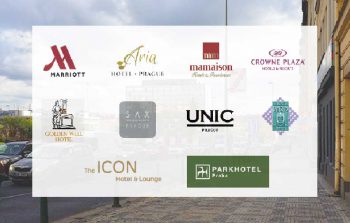
Hotel Marketing: 7 Steps to Success
Here at Evocreative, we understand hotels, and hotels love us for it. To show you how much we care, we have taken the time to provide you with 7 marketing tools that will lead to success for your hotel now and in the future:
1. Audience
Knowing who your target audience is will help you to make sure that you are putting out the right information in the right locations. You need to have idea of how your audience communicates and where the information they receive is coming from. Don’t be afraid to ask people questions. As they are checking in, ask your guests what kinds of magazines, newspapers and social media they use. You can even include these questions online as they are booking.
Not only do you need to know where your audience gets its information, you need to know how it engages online. Setting up a metric system to analyze how much traffic your website receives, how long guests are spending there, and how they get there in the first place is very important. Recording all of these details will help you to optimize your website; therefore, increasing traffic to it.
2. Branding
Many hotels overlook the idea of presenting their hotel as a brand. The idea is that the hotel’s logo will automatically generate brand recognition without any effort on part of the hotel. But the truth is, the logo is only one part of the whole picture. Your hotel’s brand is more than just a logo. It’s your identity.
Your hotel’s branding must be cohesive. Your website and all other forms of online communication must mimic the tone of your offline channels and tools. This is crucial if you want people to recognize your hotel.
The aim is to put yourself at the forefront of your guests’ minds, before, after and during their stay. So, get creative. The more effective and recognizable your branding is, the less time and effort you will need to invest in the future. With careful planning, you won’t have to worry about selling your brand; your brand will sell itself.
3. Website
When it comes to your hotel’s website design, remember to think: modern, easy, simple.
And if you think that any old website design for your hotel will do, you’re wrong. Your website must be engaging, appealing and easy to navigate. It must be visual, colorful, creative. It must capture the attention of your audience, and make them want to stay on the site and at your hotel.
First, proper website optimization is key. Your page must load quickly and say everything about your hotel in a fraction of a second. If your page loads slowly, say goodbye to a potential booking.
It is also very important to not overlook the navigability of your website. The more complicated and cluttered your site is, the more likely you’re losing business. Some sort of data-capture element and easily accessible ‘book now’ function should also be included.
Finally, including testimonials on your page is a great idea. It increases the credibility of your hotel and makes people more likely to trust your brand. Is there a celebrity or other professional staying at your hotel? Be sure to ask them for a quote.
4. Online Marketing (SEO/PPC)
Once your website is set up, it’s time to think about how to get traffic to it. Search Engine Optimization (SEO) and Pay-Per-Click (PPC) are very useful tools to take into consideration. Find out what key words people are using to search for hotels and related services. Including these words on your website and your SEO and PPC strategy will increase the chance that your page will show up at the top of any search engine.
5. Mobile
It is estimated that there will be 7 billion mobile phone users worldwide by the end of 2015, according to a report from International Telecommunication Union (ITU). This means that it is more important than ever to make sure that your web content is optimized for mobile use. Your website should not only look spectacular on a desktop, but it should look the same on your guest’s mobile phone.
6. PR
Having the press on your side can be a powerful thing. Journalists will be interested in speaking about your hotel if it is of interest to their readers and listeners. So, make yourself newsworthy and interesting by providing leads to journalists, such as news stories or ideas for feature articles.
If you are hosting an exciting event, invite local journalists. Invite travel writers from the National newspapers to come stay the night and review your hotel. You can build rapport with your local press in many ways. For example, you could send out an invitation for dinner to try out your new seasonal menu, and let them meet the head chef and other key members of your team.
7. Social Media
Social media rules today’s society. Everywhere you turn, there is someone posing to take a selfie or standing on top of a chair to capture a picture of a carefully crafted dish. That photo is loaded instantly to some form of social media platform. Facebook, Twitter, Instagram; the number of places that one photo could end up is endless.
So, why is social media so important to include in your hotel’s marketing arsenal? Four words: Instant. Free. Brand. Exposure.
Social media provides you with a way to communicate directly to your guests; it allows you to personify your brand. And odds are, your hotel has already been featured in someone’s post somewhere.
In the end, it’s your job to pay attention to what your guests are saying about your brand. Paying attention to and participating in social media will give you far greater insights than any other medium. Through it, you can get to know whom your audience is, what they like and how they like to be communicated with.

